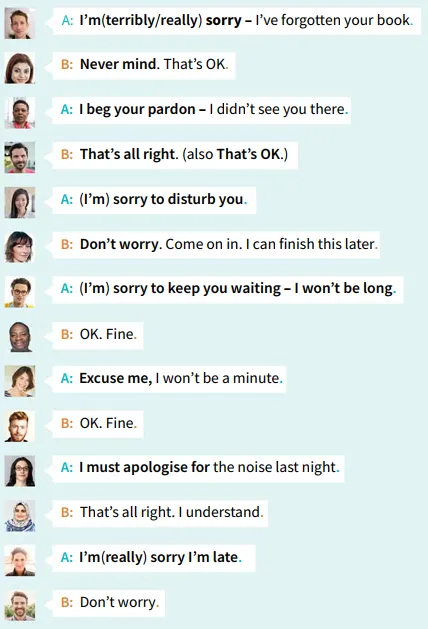A. Apologies with common replies
We can apologise [say sorry] in different ways in different situations.

- Terribly/really makes you sound ‘more sorry’.
- I beg your pardon is a more formal apology, often used if you walk into someone.
- We use this phrase when we interrupt / speak to someone who is busy working.
- We use this phrase when someone is waiting for us. I won’t be long
- = I will be with you very soon.
- We use this phrase when we have to leave a room or go somewhere.
- This is a more formal apology, and it is often used in business letters.
Common mistakes
I’m sorry I’m late. (NOT I’m sorry for be late. OR I’m sorry to be late.)
B. Excuses
We often give an explanation or excuse after an apology. An excuse is a reason for the apology, which may or may not be true. These are excuses students might give for being late for class.
I’m sorry I’m late for class …
– There was a delay / hold-up on the underground. [when a train, plane, etc. leaves or arrives later than you expect]
– I was held up in traffic. [hold up – cause a delay and make someone late – is often used in the passive]
– My train was cancelled [the train company decided not to run the train], and I had to wait half an hour for the next one.
– I overslept [slept longer than I planned or wanted to].
C. Thanks and replies
These are some common ways of thanking people, with typical replies.
A: Thanks (very much).
B: Not at all. (also That’s OK.)
A: I’ve brought your books.
B: Oh, cheers. (infml)
A: No problem. (infml)
A: I’ll post those letters for you.
B: Oh, thank you. That’s very kind of you. (This is polite and slightly more formal.)
|


Bình luận